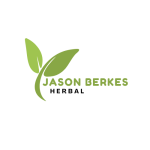Herbalism, the practice of using plants for their medicinal and therapeutic benefits, is a timeless tradition rooted in cultures worldwide. As modern society embraces holistic health, understanding the diversity within herbalism can deepen appreciation for this ancient practice and its transformative potential. Let’s explore the types of herbalism and their unique contributions to health and wellness.
Traditional Western Herbalism
Western herbalism has its roots in ancient Greek and Roman traditions, influenced by the humoral theories of Hippocrates and Galen. Over centuries, it evolved through the contributions of medieval European herbalists and modern botanists.
Western herbalism focuses on restoring balance to the body. Herbalists often use plants native to Europe and the Americas, such as chamomile, echinacea, and St. John’s wort. This tradition integrates scientific research with traditional wisdom, making it a bridge between old and new paradigms of healing.
Traditional Chinese Medicine (TCM)
Traditional Chinese Medicine has been practiced for thousands of years, deeply intertwined with Chinese philosophy and cosmology. TCM views health as a balance of “yin” and “yang,” as well as the smooth flow of “qi” (life force energy).
Herbal medicine is a cornerstone of TCM. Practitioners use complex formulas combining herbs like ginseng, licorice root, and astragalus to address specific conditions. Each herb is carefully selected for its properties and synergistic effects, ensuring a holistic approach to health.
Ayurveda
Originating in India over 5,000 years ago, Ayurveda is one of the world’s oldest holistic healing systems. It emphasizes balance among the three doshas—Vata, Pitta, and Kapha—which govern individual constitution and health.
Ayurvedic herbalism employs plants like turmeric, ashwagandha, and neem to harmonize the doshas and promote wellness. Herbs are often combined with dietary recommendations, yoga, and meditation, reflecting Ayurveda’s integrative nature.
Indigenous and Folk Herbalism
Indigenous herbalism encompasses the medicinal practices of Native peoples worldwide. These traditions are deeply connected to the land, emphasizing sustainability and respect for nature.
From the Native American use of sage and cedar to the African reliance on baobab and rooibos, indigenous herbalism highlights the spiritual and communal dimensions of plant medicine. Folk herbalism, often passed down orally, also preserves regional knowledge of plant healing in diverse cultures.
Clinical Herbalism
Modern clinical herbalism blends traditional practices with contemporary science. Clinical herbalists receive formal training in botany, pharmacology, and human physiology, ensuring they can safely integrate herbs into modern healthcare frameworks.
This approach often involves creating personalized herbal protocols, considering factors like lifestyle, medical history, and individual needs. Herbs like valerian for relaxation or milk thistle for liver support are common in clinical herbal practices.
Aromatherapy and Essential Oils
Aromatherapy focuses on the use of plant-derived essential oils for therapeutic purposes. While distinct from traditional herbalism, it draws on the same knowledge base of plants’ properties.
Essential oils like lavender, eucalyptus, and peppermint are used for their aromatic and topical benefits. Aromatherapy is valued for its ability to influence mood, reduce stress, and support physical well-being.
Eclectic Herbalism
Eclectic herbalism embraces diversity, combining elements from multiple herbal traditions. This approach allows practitioners to draw from a vast pool of knowledge, tailoring treatments to individual needs.
The eclectic movement originated in 19th-century America, where herbalists like Dr. John Scudder advocated for integrating herbal medicine into conventional practice. Today, eclectic herbalism continues to thrive as a flexible and inclusive approach to healing.
The Role of Herbalism in Modern Health
As more people seek natural remedies and holistic care, herbalism’s relevance continues to grow. It complements conventional medicine by addressing chronic conditions, supporting mental health, and enhancing overall wellness.
Education and sustainability are key in modern herbalism. Understanding the ethical sourcing of herbs and respecting traditional knowledge ensures that these practices remain viable for future generations.
Finding Your Path in Herbalism
For those interested in exploring herbalism, the journey begins with curiosity and respect. Whether growing your own herbs, studying traditional practices, or consulting with an experienced herbalist, the world of plants offers endless opportunities for learning and healing.
By embracing the diversity of herbalism, we honor the wisdom of our ancestors and unlock nature’s potential to nurture and heal. Whether for personal wellness or professional practice, herbalism invites us to reconnect with the earth and ourselves.


